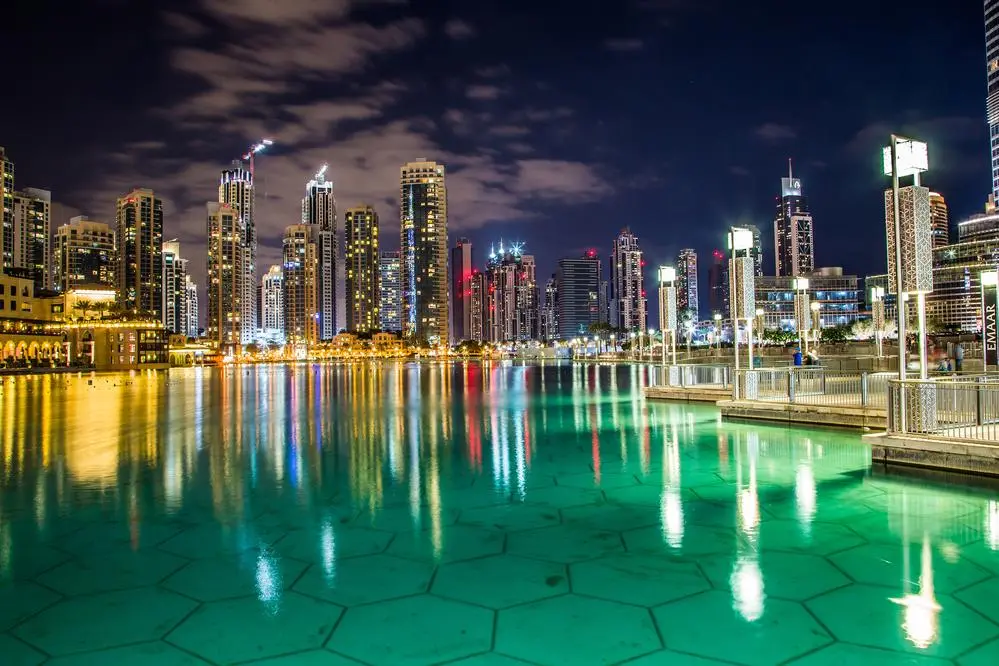PHOTO
12 January 2017
JEDDAH: Dubai, Abu Dhabi and Doha have emerged as the top three real estate markets in the Gulf Cooperation Council (GCC) region, said a report.
The GCC region has witnessed rapid economic development and demographic changes, including the influx of expatriates, which in turn has increased the region’s overall population. This coupled with a rise in per capita income has fueled the demand for residential units in the region, said the real estate review report issued by Al-Masah Capital.
The report said that the upcoming Expo 2020 in Dubai and FIFA 2022 in Doha had primarily buoyed the demand for amenities and world-class infrastructure.
Post-recession, the GCC has emerged as an attractive destination for global investors and the real estate sector has become a key economic barometer for the growth in the region.
In fact, the GCC real estate sector is one of the fastest growing sectors across the world, albeit the recent slowdown in economic growth due to oil price fluctuations. The report reaffirmed that the GCC markets are still gaining a lot of investor attention as prices are relatively stable, which reflects the real estate market’s maturity and the improved regulatory environment in the wake of plummeting oil prices.
Thus, despite oil price fluctuations, a volatile stock market and geopolitical uncertainty, the sector remains resilient and is expected to register growth at a slow pace in 2016 and beyond.
On the Real Estate Services front, this industry’s contribution to the economy has strengthened over the past decade due to an overall strong property market.
According to the report, in the United Arab Emirates (UAE), the real estate services sector employed about 821,560 people (18.6 percent of the total workforce) and in 2015 the sector contributed about 13.3 percent to GDP. This industry lateral encompasses of Facility Management (FM) and Property Management (PM); and both are still in its promising stage in the GCC when compared to developed markets such as Europe and North America. Both the FM and PM markets span a variety of functions, technologies and professions.
Furthermore, the tourism sector is likely to help accelerate growth of the real estate market in the GCC, especially for the UAE. While hospitality, residential and office lease markets remain buoyant in the GCC, the retail segment is expected to continue its aggressive expansion in the coming years. Within the residential sector, there is likely to be a continued shift of activity to the affordable sector.
The report reinstated that the GCC real estate market has evolved from a predominantly cash-funded, off-plan driven investment boom to a consolidated market, servicing greater numbers of mortgage-financed homeowners. The market has become more aligned with global standards, thus giving rise to the services industry, including property management and consultancy. The UAE real estate market has turned out to be highly fragmented and competitive with many real estate assets managed by independent services providers.
Consensually, the industry is touted to grow about 10 percent annually on average, driven by a burgeoning property market in Saudi Arabia, Dubai and Qatar, ahead of Expo 2020 and the FIFA World Cup 2022 respectively. In fact, the GCC FM market is projected to reach $66 billion by 2020 up from $37.3 billion in 2015, due to its huge potential, primarily driven by higher infrastructure spending across the region.
The report also made a worthy mention of the regional governments’ proactive bid to invest interests and funds to move the region’s development beyond the oil economy.
JEDDAH: Dubai, Abu Dhabi and Doha have emerged as the top three real estate markets in the Gulf Cooperation Council (GCC) region, said a report.
The GCC region has witnessed rapid economic development and demographic changes, including the influx of expatriates, which in turn has increased the region’s overall population. This coupled with a rise in per capita income has fueled the demand for residential units in the region, said the real estate review report issued by Al-Masah Capital.
The report said that the upcoming Expo 2020 in Dubai and FIFA 2022 in Doha had primarily buoyed the demand for amenities and world-class infrastructure.
Post-recession, the GCC has emerged as an attractive destination for global investors and the real estate sector has become a key economic barometer for the growth in the region.
In fact, the GCC real estate sector is one of the fastest growing sectors across the world, albeit the recent slowdown in economic growth due to oil price fluctuations. The report reaffirmed that the GCC markets are still gaining a lot of investor attention as prices are relatively stable, which reflects the real estate market’s maturity and the improved regulatory environment in the wake of plummeting oil prices.
Thus, despite oil price fluctuations, a volatile stock market and geopolitical uncertainty, the sector remains resilient and is expected to register growth at a slow pace in 2016 and beyond.
On the Real Estate Services front, this industry’s contribution to the economy has strengthened over the past decade due to an overall strong property market.
According to the report, in the United Arab Emirates (UAE), the real estate services sector employed about 821,560 people (18.6 percent of the total workforce) and in 2015 the sector contributed about 13.3 percent to GDP. This industry lateral encompasses of Facility Management (FM) and Property Management (PM); and both are still in its promising stage in the GCC when compared to developed markets such as Europe and North America. Both the FM and PM markets span a variety of functions, technologies and professions.
Furthermore, the tourism sector is likely to help accelerate growth of the real estate market in the GCC, especially for the UAE. While hospitality, residential and office lease markets remain buoyant in the GCC, the retail segment is expected to continue its aggressive expansion in the coming years. Within the residential sector, there is likely to be a continued shift of activity to the affordable sector.
The report reinstated that the GCC real estate market has evolved from a predominantly cash-funded, off-plan driven investment boom to a consolidated market, servicing greater numbers of mortgage-financed homeowners. The market has become more aligned with global standards, thus giving rise to the services industry, including property management and consultancy. The UAE real estate market has turned out to be highly fragmented and competitive with many real estate assets managed by independent services providers.
Consensually, the industry is touted to grow about 10 percent annually on average, driven by a burgeoning property market in Saudi Arabia, Dubai and Qatar, ahead of Expo 2020 and the FIFA World Cup 2022 respectively. In fact, the GCC FM market is projected to reach $66 billion by 2020 up from $37.3 billion in 2015, due to its huge potential, primarily driven by higher infrastructure spending across the region.
The report also made a worthy mention of the regional governments’ proactive bid to invest interests and funds to move the region’s development beyond the oil economy.
© Arab News 2017





















